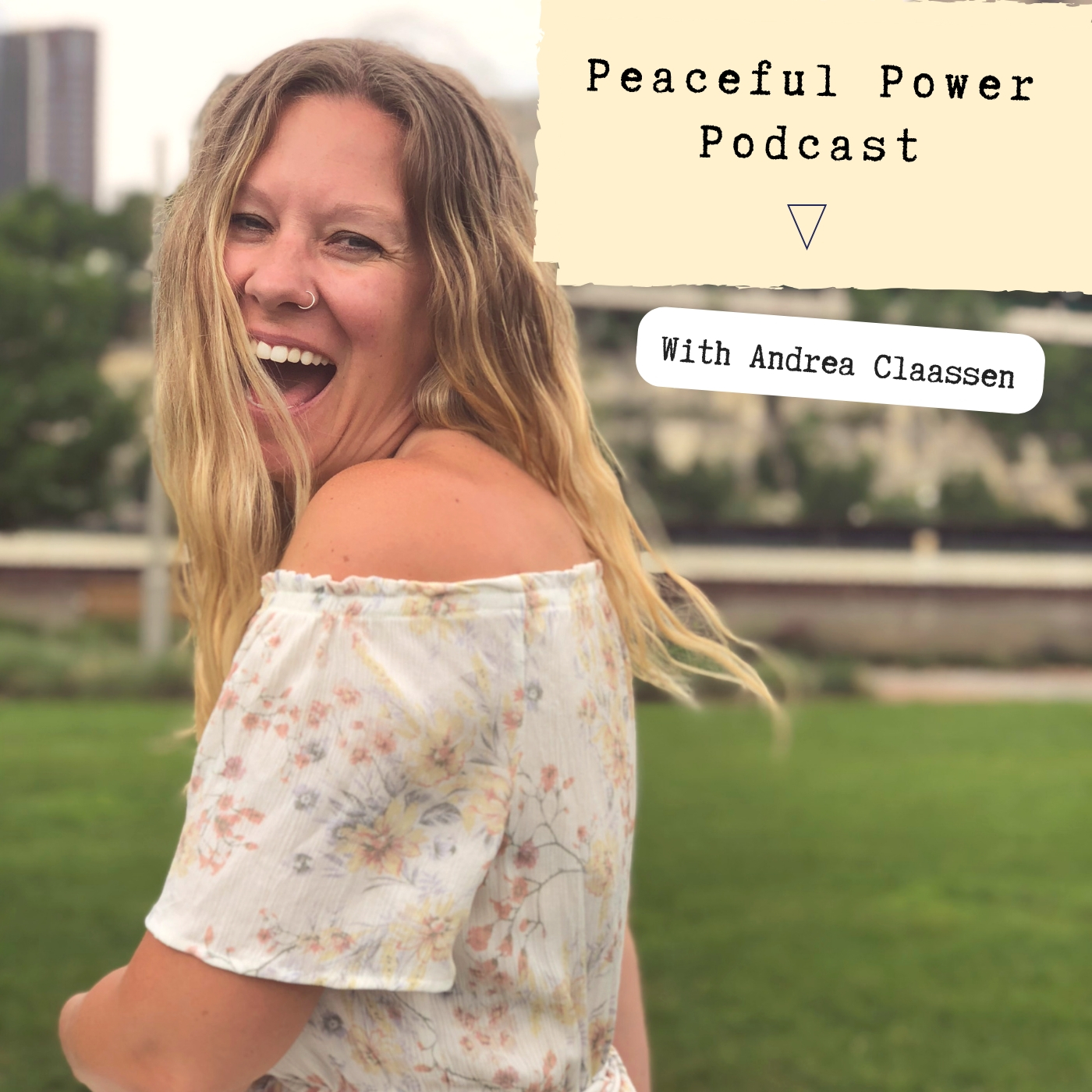Today on the Peaceful Power Podcast I’m breaking down intermittent fasting and how to know if it’s something for you to try. Yes we are going to get sciencey on today’s show!
What we are covering
- What are the benefits?
- Factors that determine fasting window
- Who should not fast?
- Damaging to adrenals or helpful
- Women while menstruating is it advised?
- What breaks the fast
- Long term fasting and when or if you need to stop
What is Intermittent Fasting?
I will reference Ayurvedic medicine idea of intermittent fasting. During the kapha season (spring) is a perfect time to experiment with a deeper fast but some are recommended year round. A daily intermittent fast can last anywhere from 12-16 hours. Meaning we are done eating dinner by 6pm and you wouldn’t eat again until the hours of 6-10am. If this is brand new to you start with 12 hours and slowly increase your fast over the course of a few months.
What are the other ways to practice fasting?
- Ayurvedic daily window fasting– 12-16 hours of not eating during your day. You might give yourself a time frame of only eating between the hours of 10am-6pm or 12pm-6pm.
- Skipping meals– Examples- Skip breakfast eat only lunch & dinner, skip lunch- eat breakfast & dinner, or skip dinner- eat breakfast & lunch. Just make sure you don’t overeat during the other meals using this method.
- Alternative day fasting- Eat 25% of your calories one day and regular the next day. An example 500 calories on your fast day on your regular day 1600-2000. On the fasting days your workout will be a walk or something light such as yin yoga.
- 24 hour fasting- You will pick a day to fast. You can fast from breakfast too breakfast or from lunchtime to lunchtime. If you are an experienced faster you can fast up to 48 hours a week. On the day your fasting take that as as rest day from the gym. If you choose this option try and stick with the same day of the week as your fasting day. For example every Thursday as you know Thursdays are the easiest day for you to incorporate a fast into your regular routine.
Benefits of Intermittent Fasting
Ayurveda has been practicing intermittent fasting for years. There are so many benefits to intermittent fasting here are just a few of the reasons to try a fast.
- Decreased risk of diabetes
- Decreased risk of cardiovascular health
- Decrease inflammation
- Improved longevity
- Protection against cancer
- Reduced blood pressure
- Reduced oxidative stress
- Weight management tool
Why engage with intermittent fasting? Most of us are overfed and under-nourished. We Consume our calories and a lot are empty calories meaning they are not leaving us feeling nourished. In Ayurveda digestion is everything. If we cannot digest our food properly that will lead to the start of a dosha imbalance which can lead to disease in the body. The fasting will help fully eliminate between a meal.
Who should not fast?
- Younger kids
- Elderly who are more frail 80+
- Pregnant
- Breastfeeding
- Menstruating (a deeper cleanse intermittent fasting is okay maybe stick to a 12 hour fast those days)
- Underweight
- Undernourished
- Chronic illness
- Always consult with an Ayurvedic practitioner before partaking in an extensive cleanse to properly go into & come out of the fast
Damaging to the Adrenals
It can be for those who are not in a good circadian rhythm meaning those who are not getting a good restful sleep. Instead intermittent fasting helps regulate blood sugar and helps teach you when you are truly hungry and when it’s a craving. If you are doing a 12 hour fast overnight that is the easiest on the adrenals if you are fasting for a number of days with no food it would not be recommended while suffering from adrenal fatigue.
How Often Can you Practice Fasting?
It really depends on the type of fast your doing. If your doing the Ayurvedic 12-16 hour daily fast you can continue practicing that daily throughout your lifetime. Most of the fasts listed above can be incorporated into your weekly or monthly routine. More and more research is showing fasting is beneficial to all of the above health benefits and can be practiced safely for better long-term health. In the end listen to your body and plan it out if you are interested in adding a regular intermittent fast into your regular routine.
Weekly Challenge:
If your health permits try an intermittent fast this week. Decide what time frame feels best to you 12-16 hours and plan your day accordingly.
Where to Connect with Andrea
Instagram- instagram.com/andreaclaassen21
Website- andreaclaassen.com
